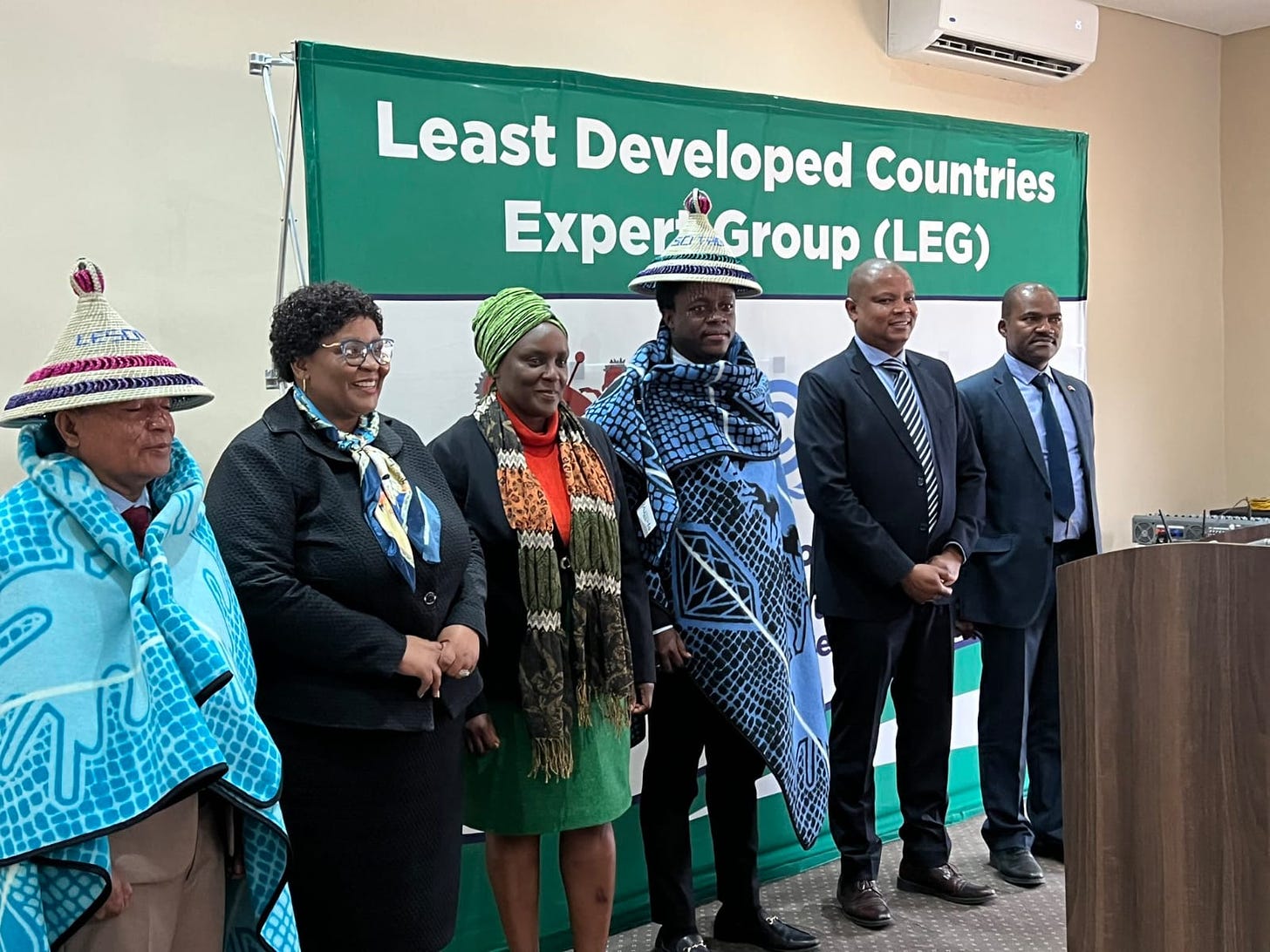Lesotho hosts water meeting, urges regional collaboration
Amanda Khozi Mukwashi, the United Nations Resident Coordinator in Lesotho, stressed that neighbouring countries heavily rely on Lesotho's water resources.
MASERU, LESOTHO — The 44th meeting of the Least Developed Countries Expert Group (LEG) is currently underway in Lesotho, shining a spotlight on the critical need for regional collaboration to ensure sustainable water management, writes Matiisetso Mosala
Amanda Khozi Mukwashi, the United Nations Resident Coordinator in Lesotho, stressed that neighbouring countries heavily rely on Lesotho's water resources.
As a result, collaborative efforts are essential to tackle water scarcity and ensure the sustainability of water management across the entire region.
The water that originates from Lesotho's highlands serves as a lifeline for downstream agriculture, industry, and livelihoods.
The LEG meeting, focusing on supporting Least Developed Countries, has brought together representatives from the Lesotho government and stakeholders.
The event spans from August 14 to 17, 2023, and aims to assist the country in devising and implementing plans and strategies to access climate change funding effectively.
In her address at the event, Mukwashi underlined the urgent need for collective action to address both the local and global consequences of climate change.
Despite its location in Southern Africa, Lesotho is significantly vulnerable to the impacts of climate change.
Mukwashi emphasised that the nation's delicate ecosystems, heavily reliant on rain-fed agriculture, are strained by erratic weather patterns, prolonged droughts, and shifting precipitation trends.
These challenges reverberate throughout the country, exacerbating food and water insecurity, imperilling livelihoods, and undermining socioeconomic progress.
Mukwashi highlighted that the repercussions of climate change in Lesotho have far-reaching effects, impacting not only the nation but also the broader region.
"Its fragile ecosystems, predominantly reliant on rain-fed agriculture, are increasingly strained by erratic weather patterns, prolonged droughts, and changing precipitation trends. These adverse effects ripple across the country, exacerbating food and water insecurity, threatening livelihoods, food security, and undermining socioeconomic progress," explained Mukwashi.
According to the United Nations, Lesotho finds itself among the two countries that have not yet completed their National Determined Contributions (NDCs), or finalised their National Adaptation Plans (NAPs).
Mukwashi urged the Lesotho government to prioritise the completion of these pivotal documents by the end of this year.
She stressed that Lesotho must demonstrate its unwavering commitment to global climate action and align its national strategies with international objectives.
Discussing the upcoming Africa Climate Change Summit scheduled for September, Mukwashi highlighted that Lesotho can play a pivotal role in shaping a collective approach and advocating for Africa's distinct climate challenges.
She emphasised that the summit presents an opportunity for Lesotho to showcase its transition from planning to the practical implementation of initiatives that align with the Sustainable Development Goals (SDGs).
"Lesotho can play a pivotal role in shaping this collective approach, advocating for the unique challenges faced by our continent, and championing innovative solutions. It is also an opportunity to showcase to the world how Lesotho will shift gears, from planning to implementation, towards achieving the Sustainable Development Goals (SDGs)," said Mukwashi.
Commending the National Climate Change Coordination Committee, Mukwashi acknowledged their efforts in combating climate change in Lesotho.
She affirmed that the United Nations is fully prepared to support flagship programmes targeting food security, rehabilitating ecosystems, ensuring water security, and building resilience.
These programmes, she noted, are designed not only to mitigate the effects of climate change but also to promote sustainable development in alignment with the SDGs.
"There is a need for high-level leadership and improved coordination at the national level to tackle climate change challenges comprehensively, and this issue transcends sectors and demands a whole-of-government and whole-of-society approach," noted Mukwashi.



